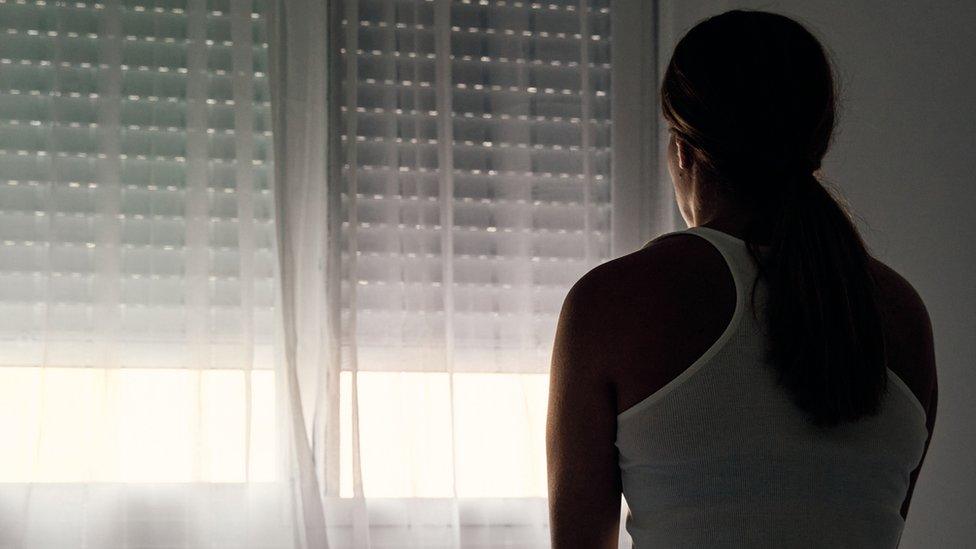Domestic abuse: Most dangerous offenders to go on sex offenders' register
- Published

The most dangerous domestic abusers will be put on the violent and sex offender register, ministers have said.
A proposed law change will see them monitored more closely by the police, prison and probation services so they "don't fall through the cracks".
Such offenders also face being electronically tagged under measures being piloted in three UK areas.
For the first time, the police will be required to treat violence against women and girls as a "national threat".
This means it should be given the same priority as serious organised crime, terrorism and child abuse.
Home Secretary Suella Braverman, said: "Domestic abuse is a despicable crime that leads to people's closest relationships becoming a frightening existence of torment, pain, fear, and anxiety.
"It is completely unacceptable and as home secretary I will do everything in my power to stop it."
Some 2.4 million adults in England and Wales experienced domestic abuse in 2021, according to crime survey figures published in November by the Office for National Statistics.
Almost three-quarters of the victims were women, facing abuse that includes violence, threatening behaviour, financial control and coercive behaviour.
Under the government's proposals, the law will be changed so that police, prison and probation services have to jointly manage offenders with a sentence of at least a year, or a suspended sentence for controlling or coercive behaviour - putting the crime on a par with physical violence.
While the process to change the law takes place, such offenders will be recorded on the Violent and Sex Offender Register so they "don't fall through the cracks", the government said.
Perpetrators could be made to attend behavioural change programmes being piloted in Gwent, Greater Manchester and the London boroughs of Croydon, Bromley and Sutton.
The new civil orders being trialled will also include electronic monitoring, and making it mandatory for abusers to notify the police of a name or address change.
And a digital tool to help police officers identify likely perpetrators - even those without convictions - will be developed.
On top of these measures, the Ask for Ani codeword scheme, which allows victims or those at risk of abuse to discreetly signal they need help, is to be further piloted in job centres around the UK.
The scheme was first rolled out in 2021 and operates in more than 5,000 pharmacies.
The government has said it will allocate up to £8.4m over two years from April for specialist victim support programmes.
And some £36m over two years will go to Police and Crime Commissioners to fund interventions tackling abusers' behaviour.
Nicole Jacobs, the domestic abuse commissioner for England and Wales, said monitoring convicted domestic abuse perpetrators would require investment, adding "we need to make sure that this is properly resourced and that is not in this announcement today".
She said other anti-abuse policies in recent years have not been given sufficient backing, warning "the attention and ongoing commitment is dropped" after an announcement.
Ms Jacobs said "the vast majority of all perpetrators are not known to the police and may not have a conviction", meaning they would not be subject to the new requirements.
Responding to the announcement, Labour's shadow home secretary Yvette Cooper said her party had first called for a domestic abuse register years ago, adding that they "welcome the eventual commitment to introduce one".
"But the government isn't moving quickly enough," she said.
In recent months the issue of domestic abuse perpetrated by police officers and staff has also made headlines.
A review last year found there were systemic problems in the way some police forces in England and Wales deal with such allegations against their own officers and staff.
In the Metropolitan Police alone, the force is investigating 1,000 sexual and domestic abuse claims involving about 800 of its officers.